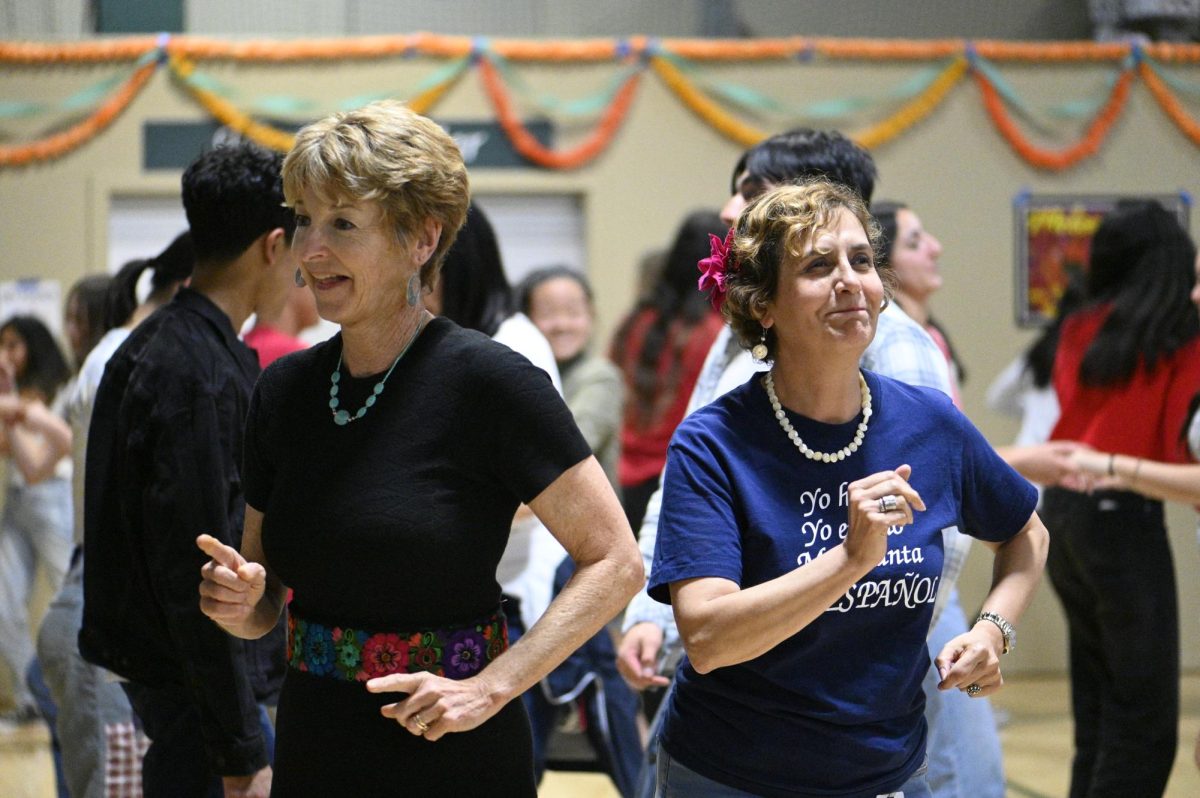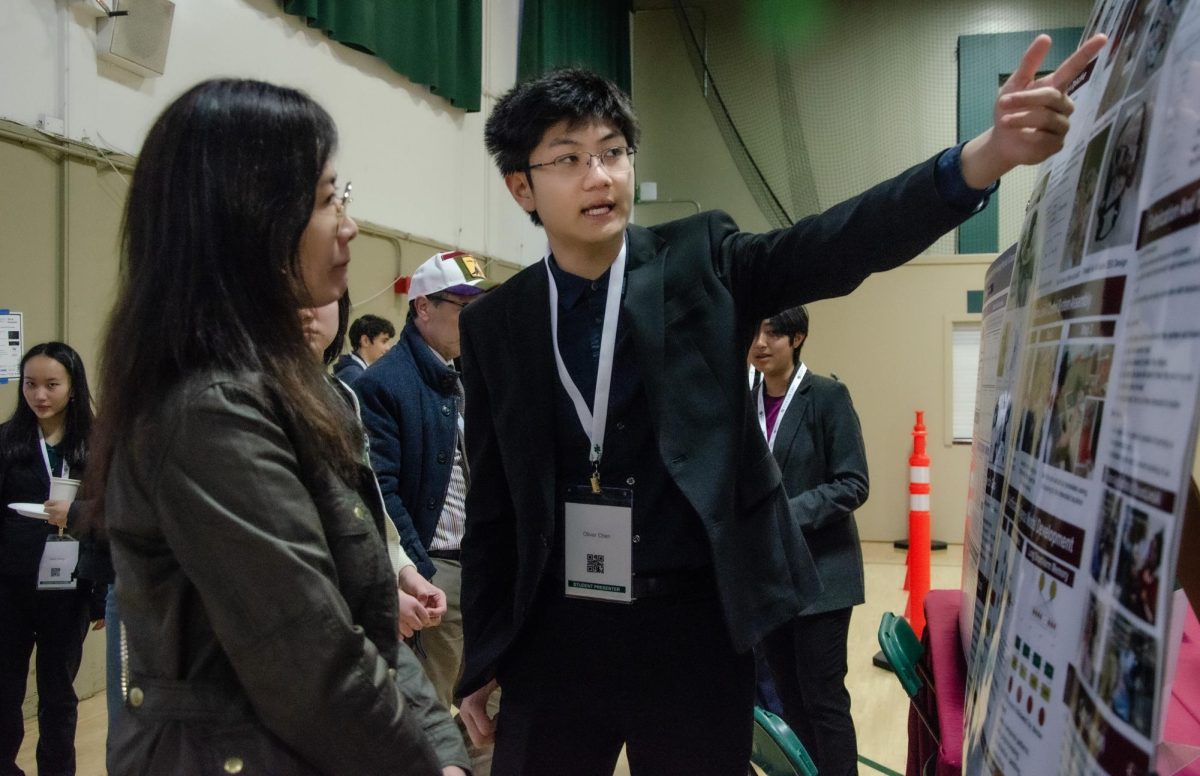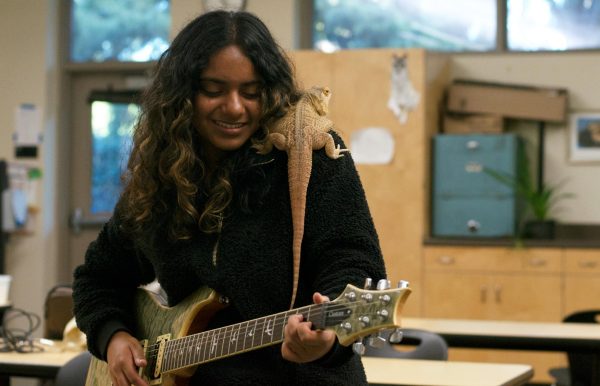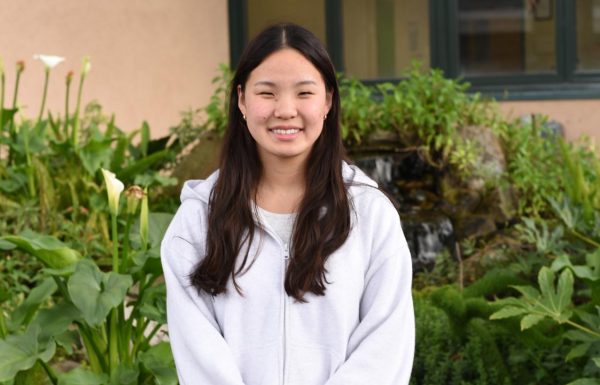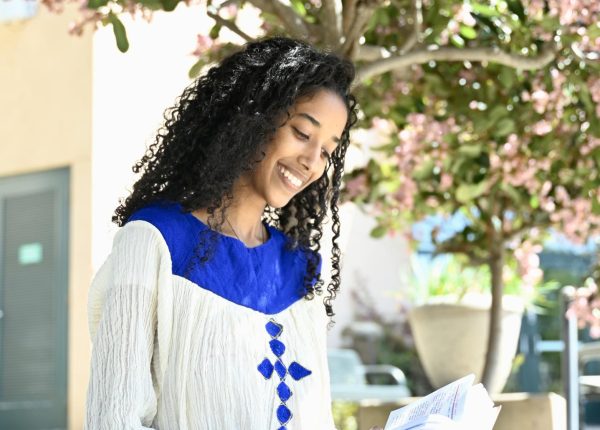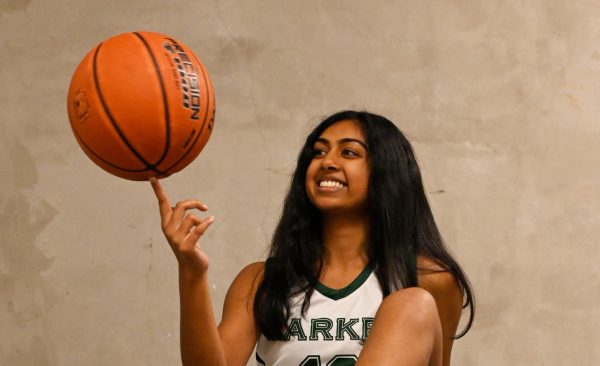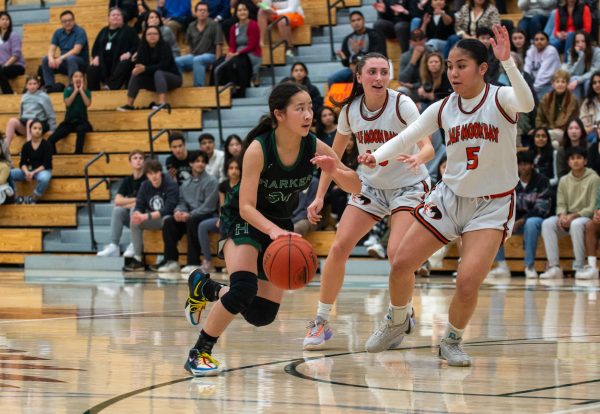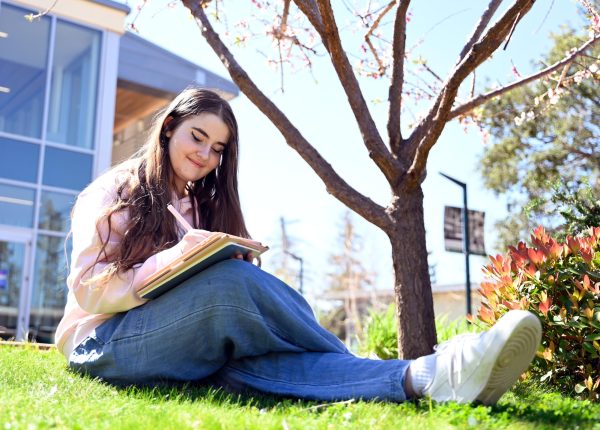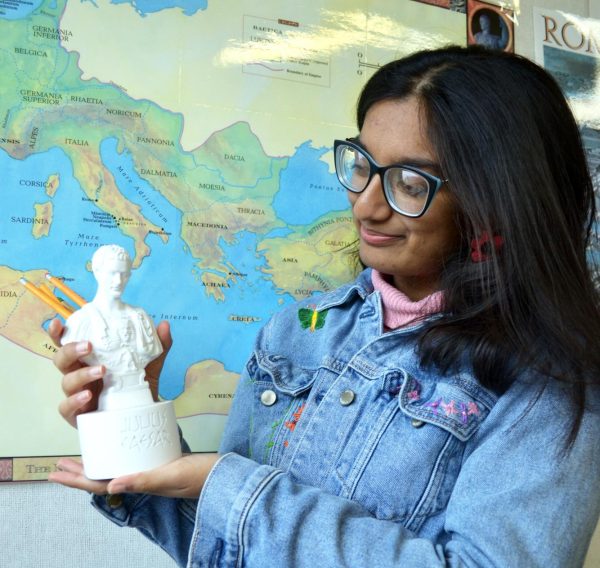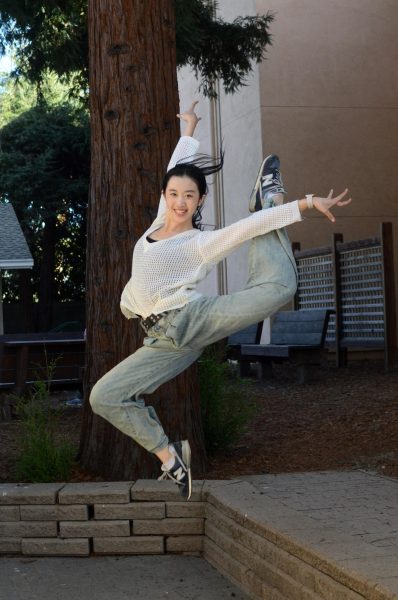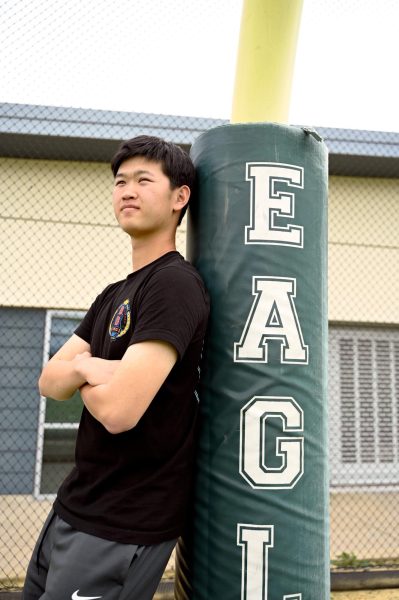Q&A with several of the new upper school coaches
Join Harker Aquila, as we sit down with several of the new coaches added to the upper school’s coaching roster in addition to coaches returning with a new position. Below is the abridged interview, which includes some of the highlights.
The coaches featured in the this interview are new track coaches Katy Rees, Zachary Wohlford and Erica Kenworthy, swim coaches Alisha Garcia and Andrew Booth, and boys’ volleyball coach Tristan Burton.
Harker Aquila: What is your background in [your sport]?
Katy Rees: I began running competitively in high school but ended up choosing not to run in college; [track is] a sport you can compete in for the rest of your life, with or without a team. I’ve continued running as an adult, including several marathons and triathlons, but racing on the track has always been my favorite.
Zachary Wohlford: I did four years of high school track and field at Rancho Bernardo HS in San Diego, Ca. I was a three time varsity letter recipient for pole vault, 100m dash, 200m dash, and 4x100m relay. My senior year I was unable to compete due to injury so I was given the opportunity to become a student coach. This was the beginning of my coaching career.
Erica Kenworthy: I ran track at Saint Francis High School in 2001-2004 with my events being: 100m hurdles, 300m hurdles, 400m, 200m and the 4x400m relay [and] was an assistant Girls’ Cross Country Coach at Saint Francis High School for fall 2014. This is how I fell in love with coaching!
Alisha Garcia: I was a club swimmer for over 10 years; I swam on the varsity swim team all four year in high school. I taught beginning swimming at Fresno State while in college. I’ve been the lower/middle school swim coach [at Harker] since 2008 and an assistant swim coach at the upper school for the past four years.
Andrew Booth: I’ve swam on a swim team since I was five, and I’ve been working in aquatics since I was 13, teaching some lessons and lifeguarding. Five years ago, I started coaching with the middle school team.
Tristan Burton: I have been coaching volleyball for 15 years. I started as the Frosh/Soph girls’ volleyball coach at Menlo-Atherton High School when I was a graduate student and eventually ended up as an Assistant Coach for the UC San Diego men’s volleyball team. Currently, I coach the 18’s at Bay To Bay Volleyball Club in addition to Harker.
HA: What are your hopes and goals for [your sport] this season? In terms of improvement and CCS?
KR: We’re excited to have a strong turnout this season and to have athletes competing in a variety of events. Our goal is for each athlete strive for and reach personal bests in his or her individual events. I hope to see team members reach maximum success by working together and encouraging each other in setting and achieving goals.
ZW: To help the athletes improve in their disciplines, break school records, and go to CCS and State meet. Personally, I wish to continue learning all that I can as a coach in order to help the student athletes achieve their goals of greatness.
EK: Of course, it’s always a coach’s hope to have the team make it to CCS. And we can! We have some great talent on the team. It’s also my goal to make sure our athletes are enjoying coming out every day. It’s hard work but it should also be fun – that’s when you see the most improvement.
AB: I’m looking to see [the team] grow. We do have a good amount of club swimmers this year, this particular group of swimmers has a lot of room for improvement, has a lot of potential.
TB: That we can get the right mechanics and systems in place. Wins and losses and post-season success are things over which we have less control so I choose to focus more on things that we do control, our effort, our attitude, and the way we execute the skills of the game individually and as a team.
HA: What is your favorite aspect of coaching a team?
KR: Getting to know the individual athletes and seeing them progress toward their goals.
AG: The competition and teamwork. Although swimming is an individual sport, I also see it as a team sport when it comes to relays, scoring points for your team, supporting teammates and working together at practice.
TB: The motor learning process. It is very difficult to make changes to the motor programs that we use to execute the skills of the game and so I find it rewarding to be able to help athletes learn about why the changes are necessary, execute the changes, and see the improvement in their performance.
HA: How were you selected to be an upper school coach?
EK: I was fortunate enough to be coached by the esteemed [Head Cross Country and Track Coach] Scott Chisam, and his equally talented and knowledgeable wife, Roberta Chisam (Saint Francis Head Girls’ Cross Country Coach), during my high school track career. I was an assistant Girls’ Cross Country Coach at Saint Francis High School this past fall and, over the course of many meets, I became reacquainted with Scott Chisam. Scott was in need of a hurdles coach for his track team and I was ecstatic to be offered the position!
TB: Dan Molin, the Upper School Athletic Director, was the former [volleyball] coach. He was interested in having someone else lead the program and he decided I was a good fit.
HA: What is the most challenging aspect of coaching a team?
AG: The dedication needed from every swimmer on the team; so far, the team this year has been very dedicated and I’m proud of them.
TB: Creating an environment where deliberate practice is continuously occurring. All the research indicates that you must have this type of practice in order to become an expert at any skill. It takes a lot of effort to design and execute practice plans that allow athletes to get the deliberate practice they need.
HA:What do you hope your athletes to have accomplished by the end of the season?
KR: For me, high school track was where I really saw the importance of hard work and dedication in a tangible way. Once I understood what it meant to give my best effort every day and committed to doing so, I saw improvement. People wonder how running can be fun, and the truth is it isn’t all that much fun by itself — it’s running faster that gets you hooked! I hope that all of our athletes can develop a lifelong love of the sport by working hard, encouraging one [another], and successfully reaching their goals.
Additional reporting by Alexander Wang.
Tara Parimi (12) is co-Editor-in-Chief of Harker Aquila, and this is her fourth year on staff. She has been involved with the upper school's journalism...































![Setter Emma Lee (9) sets the ball to the middle during the match against Pinewood on Sept. 12. “[I’m looking forward to] getting more skilled, learning more about my position and also becoming better friends with all of my teammates, Emma said.](https://harkeraquila.com/wp-content/uploads/2023/09/DSC_4917-2-1200x795.jpg)








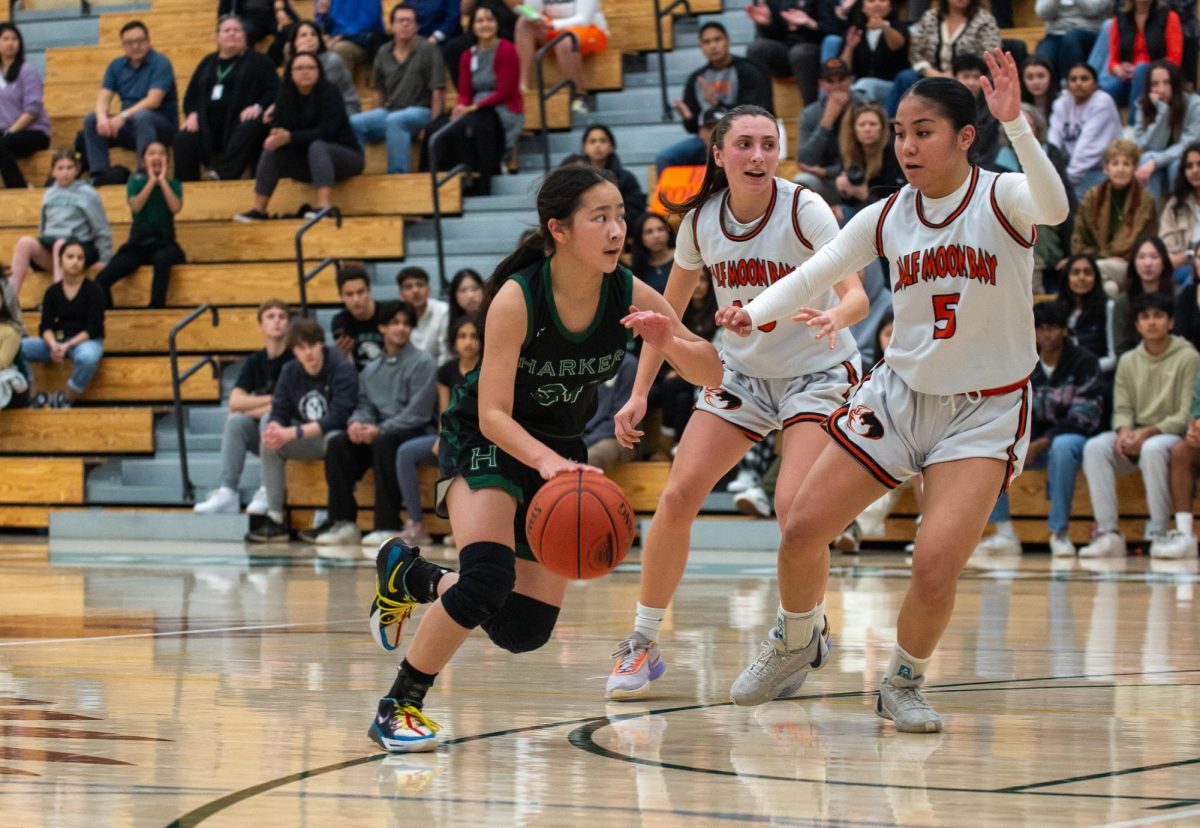























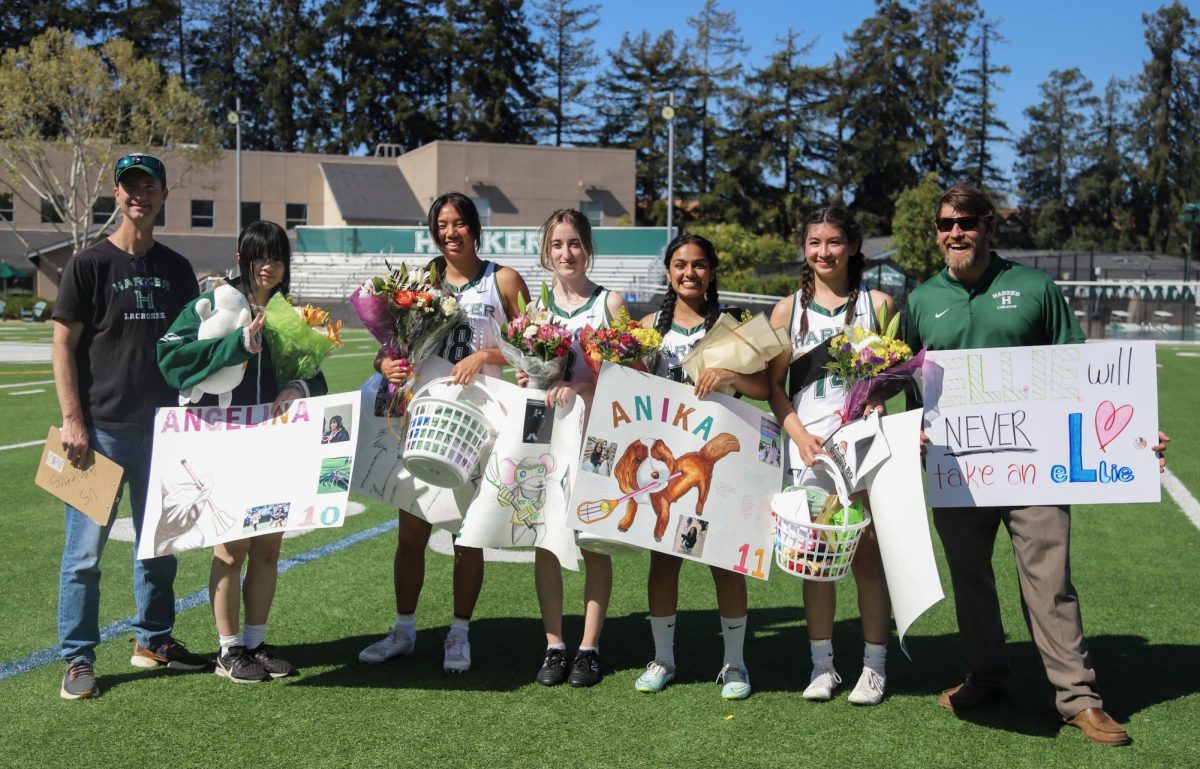
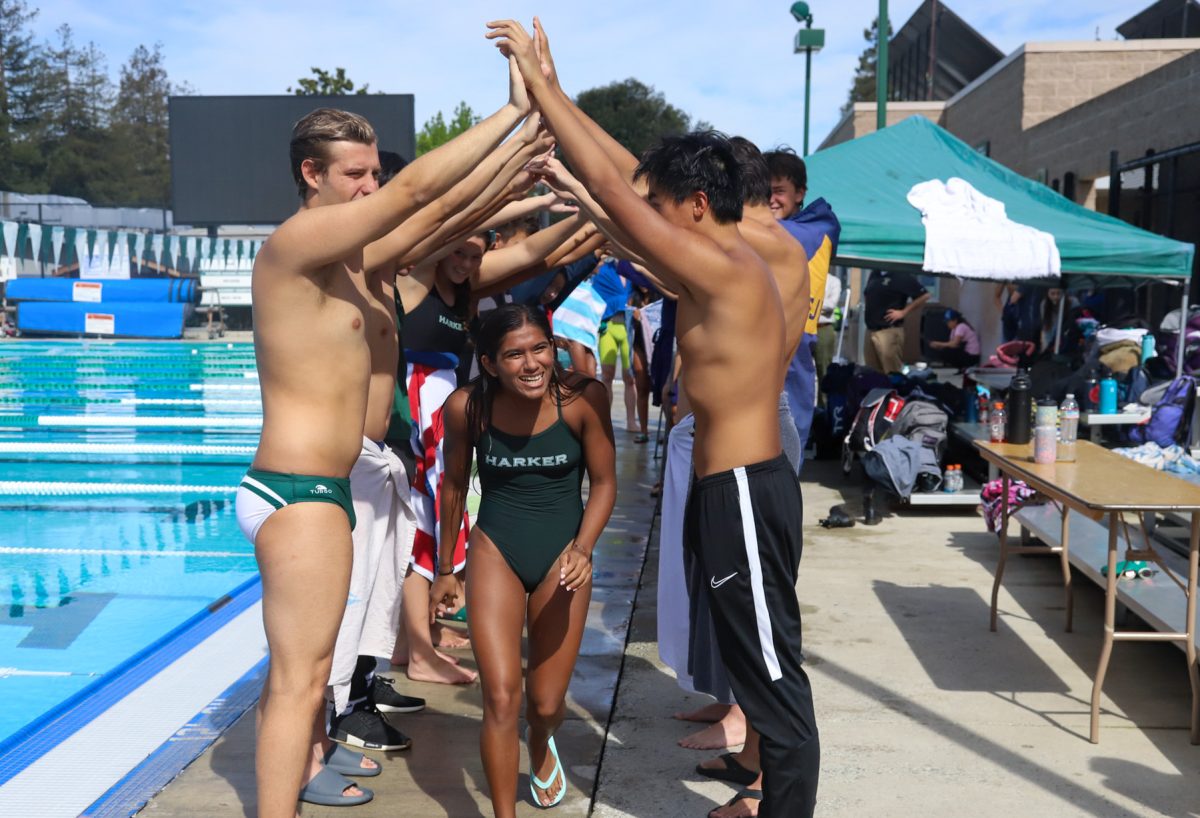
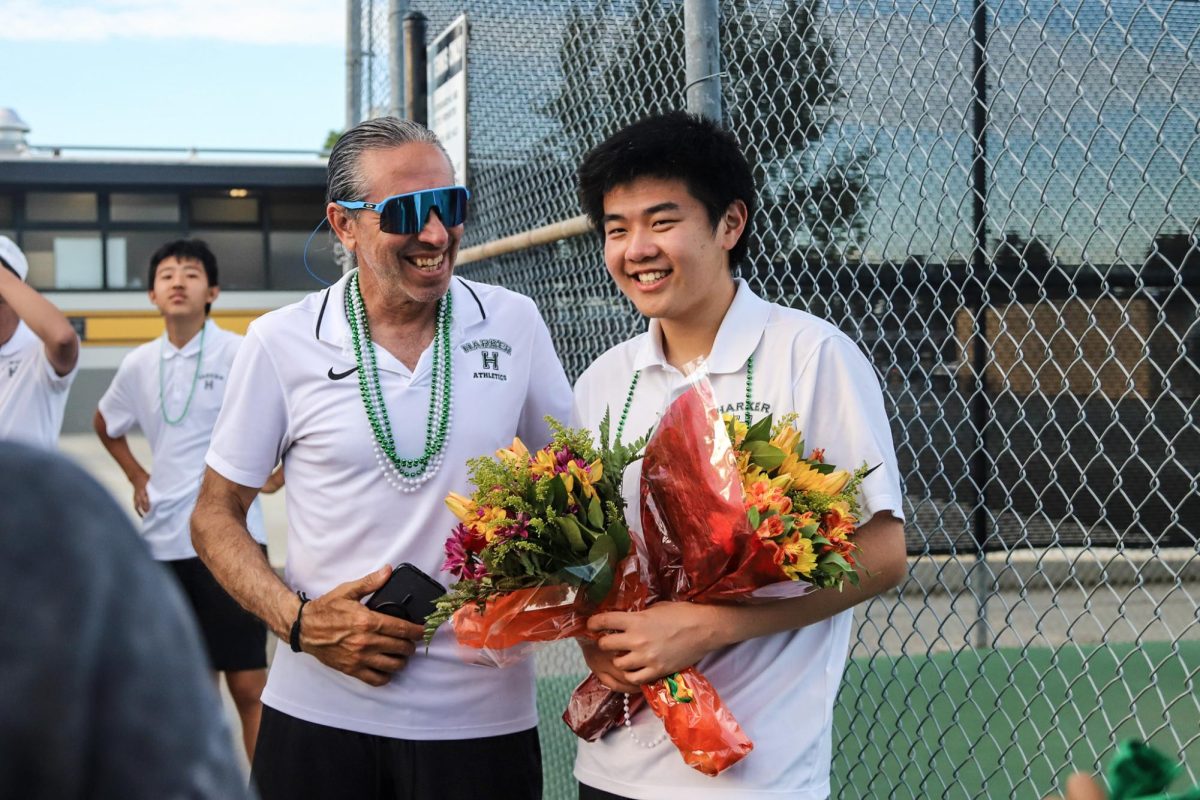
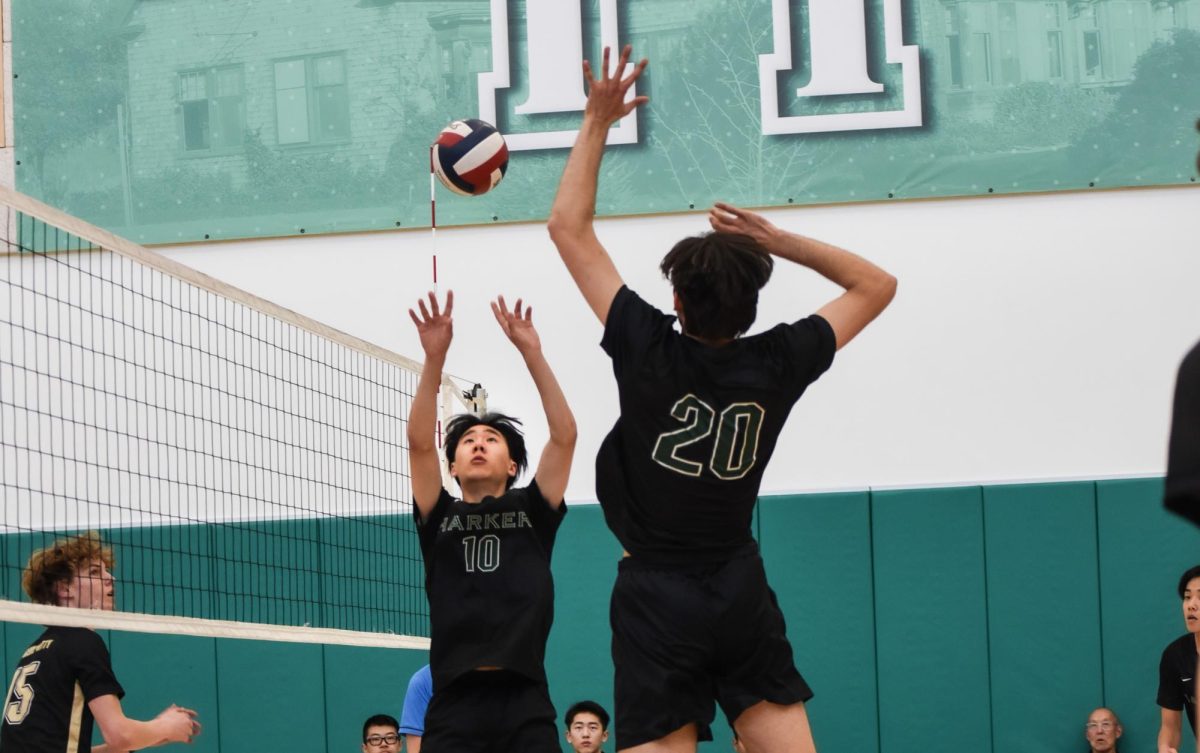
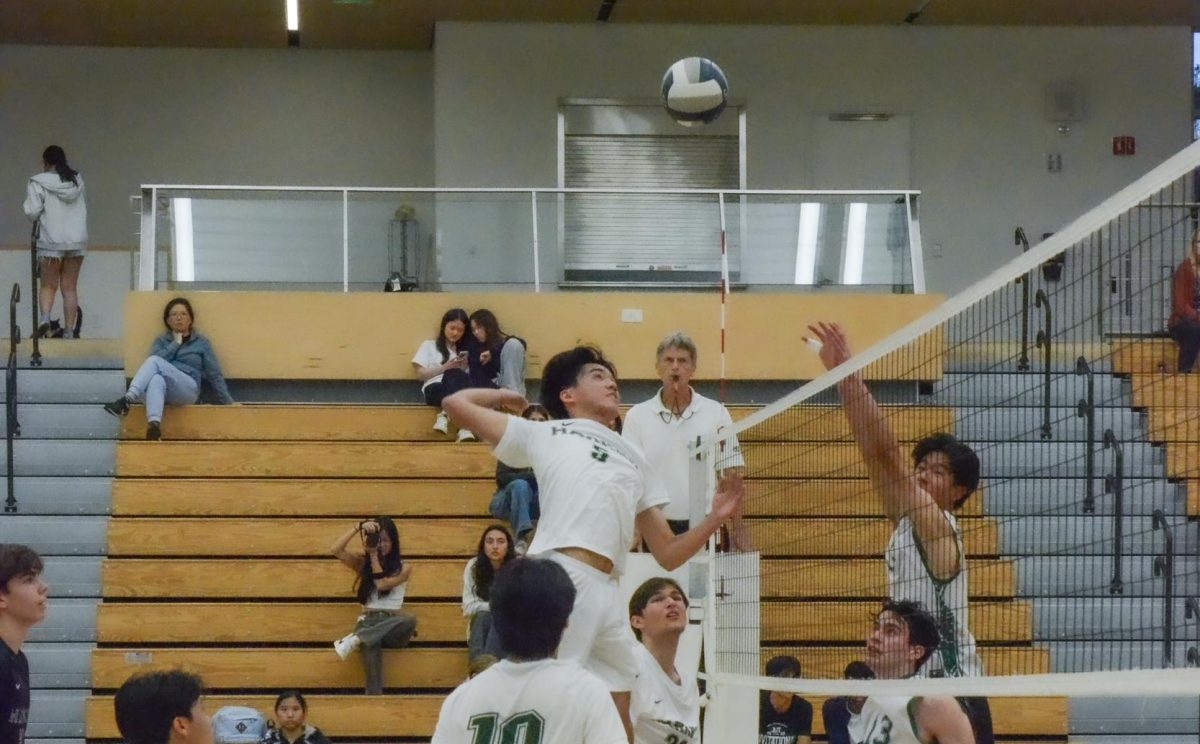
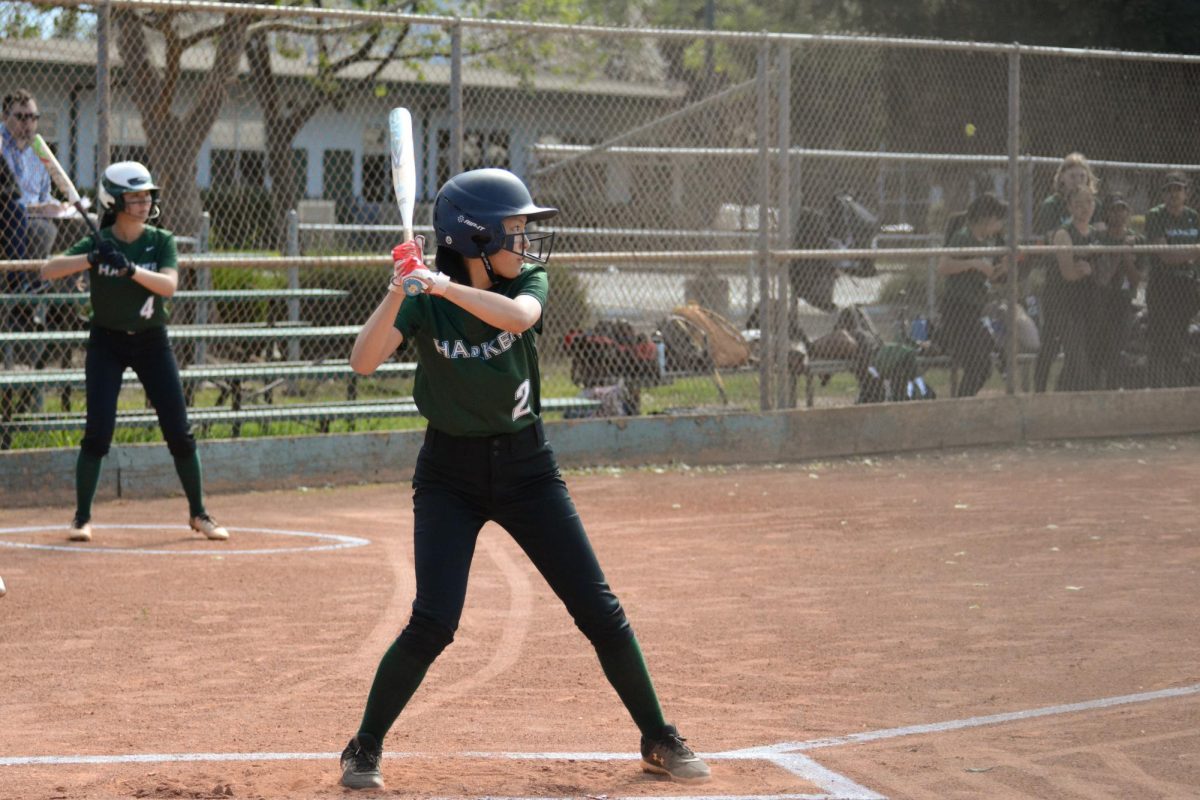



























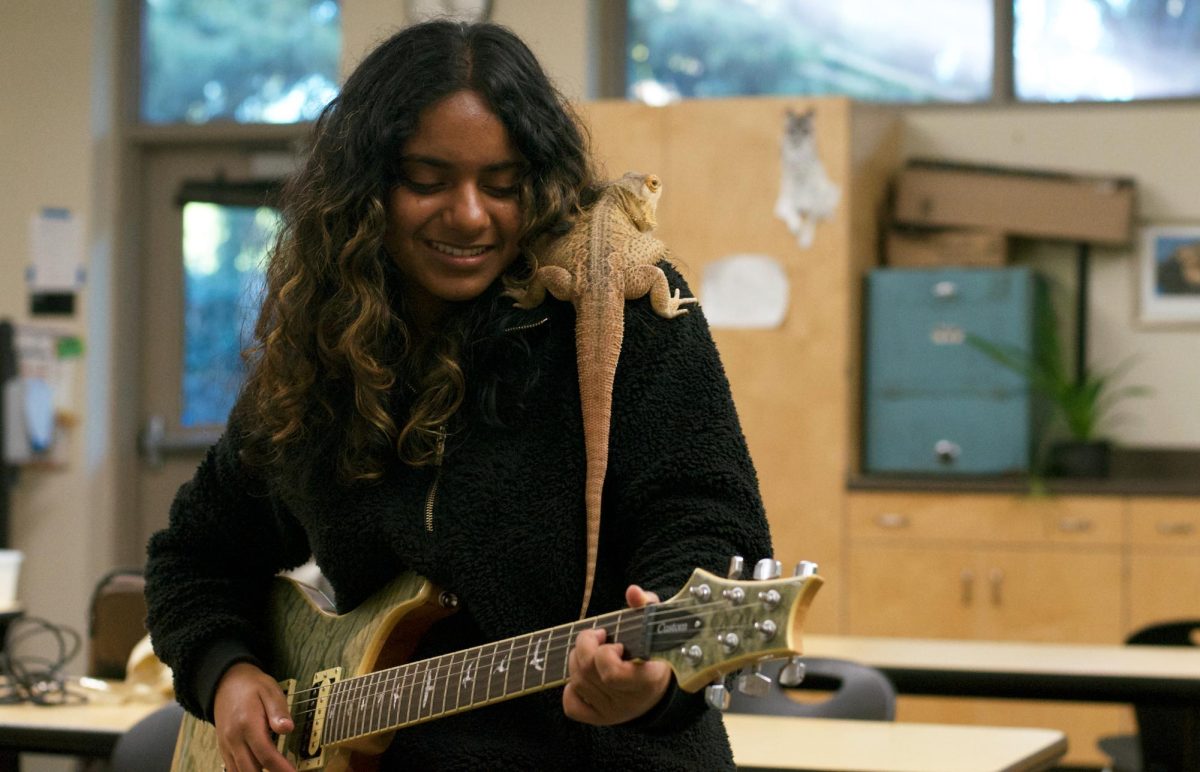
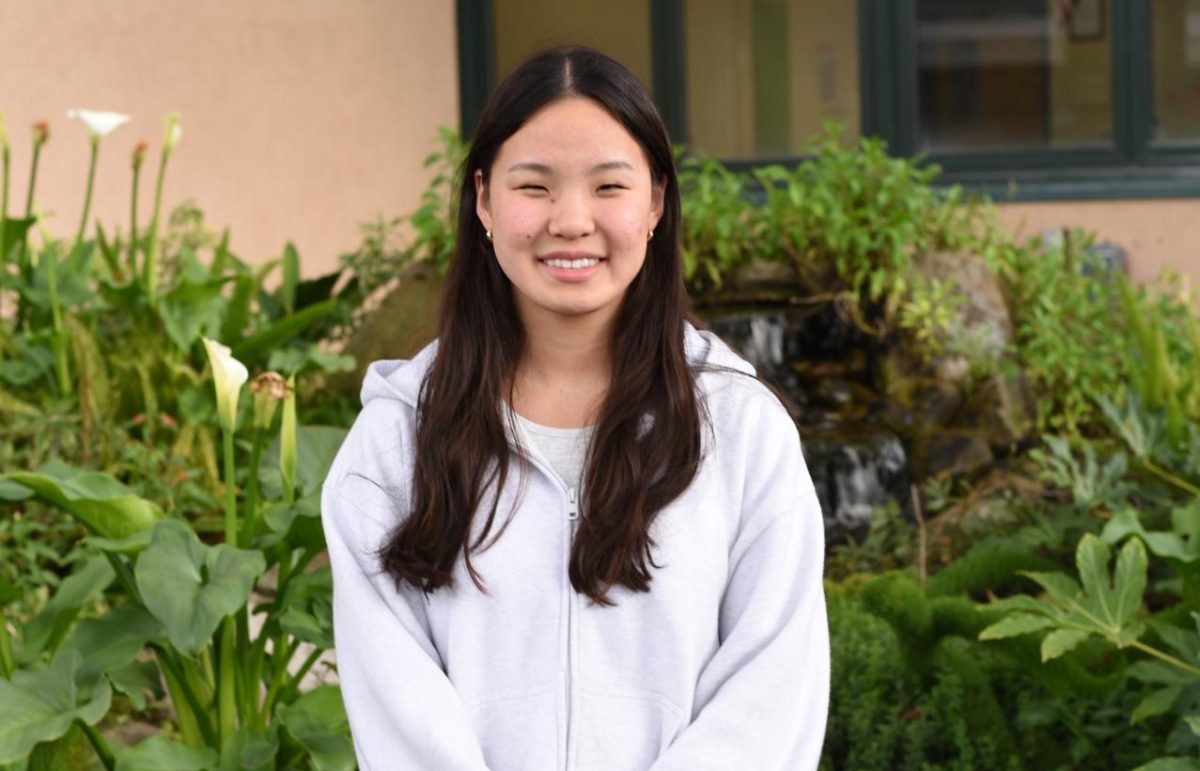
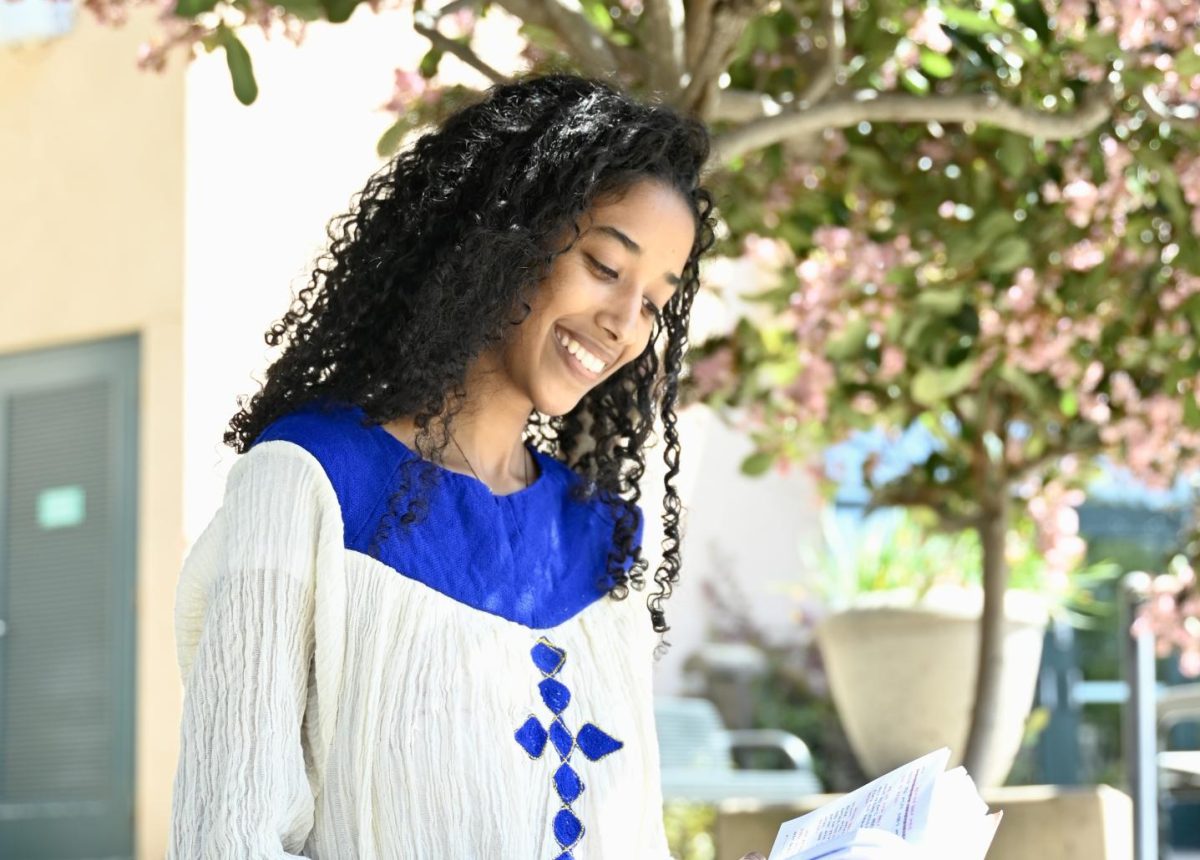
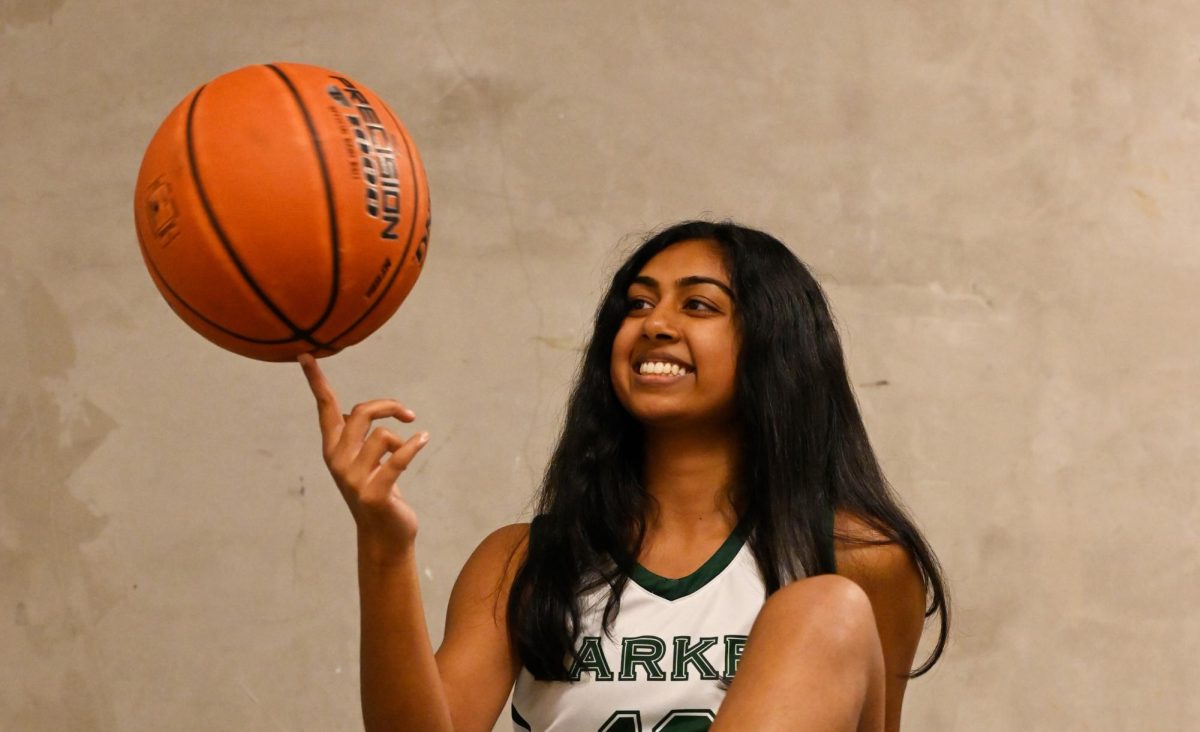

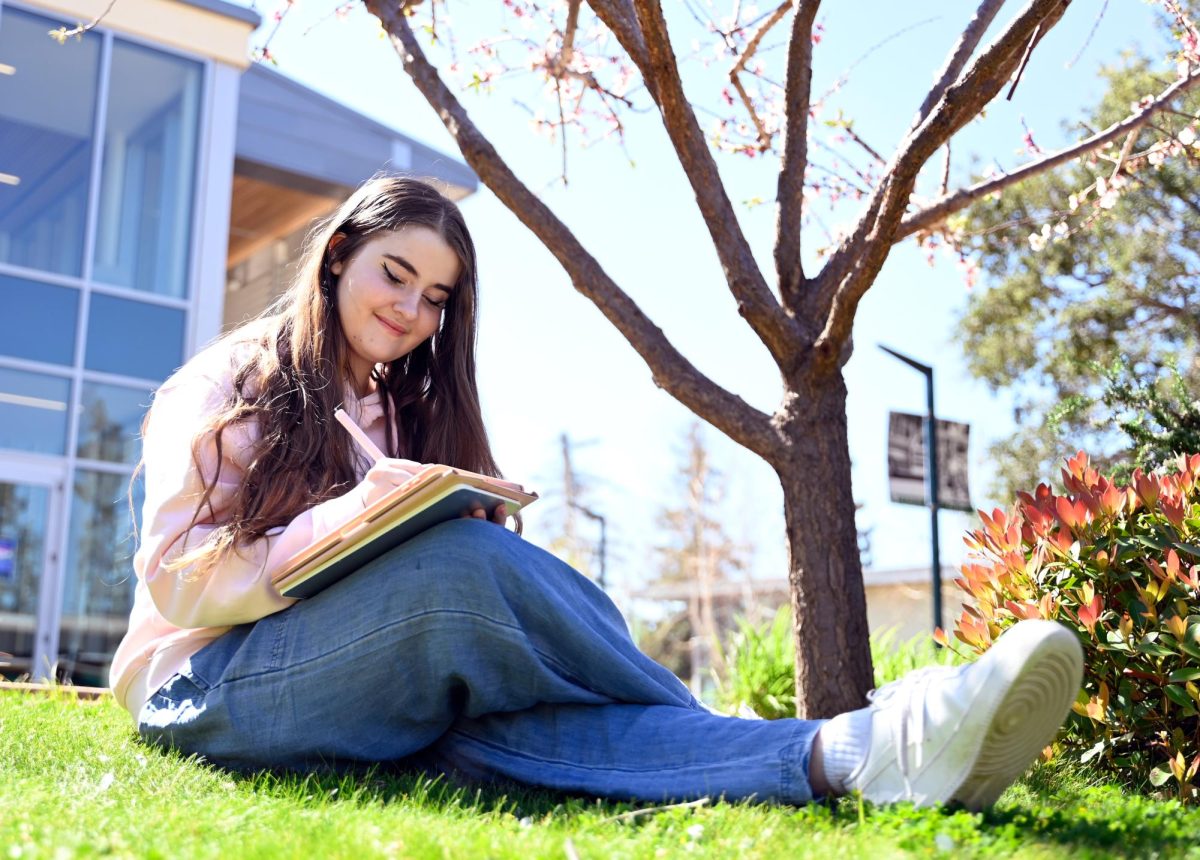








![“[Building nerf blasters] became this outlet of creativity for me that hasnt been matched by anything else. The process [of] making a build complete to your desire is such a painstakingly difficult process, but Ive had to learn from [the skills needed from] soldering to proper painting. Theres so many different options for everything, if you think about it, it exists. The best part is [that] if it doesnt exist, you can build it yourself, Ishaan Parate said.](https://harkeraquila.com/wp-content/uploads/2022/08/DSC_8149-900x604.jpg)


![“Animation just clicked in a way. I had been interested in art, but that felt different. [Animation] felt like it had something behind it, whereas previous things felt surface level. I wasnt making that crazy of things, but just the process of doing it was much more enjoyable, Carter Chadwick (22) said.](https://harkeraquila.com/wp-content/uploads/2022/08/Screen-Shot-2022-08-16-at-9.44.08-AM-900x598.png)


![“When I came into high school, I was ready to be a follower. But DECA was a game changer for me. It helped me overcome my fear of public speaking, and its played such a major role in who Ive become today. To be able to successfully lead a chapter of 150 students, an officer team and be one of the upperclassmen I once really admired is something Im [really] proud of,” Anvitha Tummala (21) said.](https://harkeraquila.com/wp-content/uploads/2021/07/Screen-Shot-2021-07-25-at-9.50.05-AM-900x594.png)



![“[Volleyball has] taught me how to fall correctly, and another thing it taught is that you don’t have to be the best at something to be good at it. If you just hit the ball in a smart way, then it still scores points and you’re good at it. You could be a background player and still make a much bigger impact on the team than you would think,” Anya Gert (’20) said.](https://harkeraquila.com/wp-content/uploads/2020/06/AnnaGert_JinTuan_HoHPhotoEdited-600x900.jpeg)

![“Im not nearly there yet, but [my confidence has] definitely been getting better since I was pretty shy and timid coming into Harker my freshman year. I know that theres a lot of people that are really confident in what they do, and I really admire them. Everyones so driven and that has really pushed me to kind of try to find my own place in high school and be more confident,” Alyssa Huang (’20) said.](https://harkeraquila.com/wp-content/uploads/2020/06/AlyssaHuang_EmilyChen_HoHPhoto-900x749.jpeg)













![“My slogan is ‘slow feet, don’t eat, and I’m hungry.’ You need to run fast to get where you are–you arent going to get those championships if you arent fast,” Angel Cervantes (12) said. “I want to do well in school on my tests and in track and win championships for my team. I live by that, [and] I can do that anywhere: in the classroom or on the field.”](https://harkeraquila.com/wp-content/uploads/2018/06/DSC5146-900x601.jpg)

![“I think getting up in the morning and having a sense of purpose [is exciting]. I think without a certain amount of drive, life is kind of obsolete and mundane, and I think having that every single day is what makes each day unique and kind of makes life exciting,” Neymika Jain (12) said.](https://harkeraquila.com/wp-content/uploads/2017/06/Screen-Shot-2017-06-03-at-4.54.16-PM.png)





